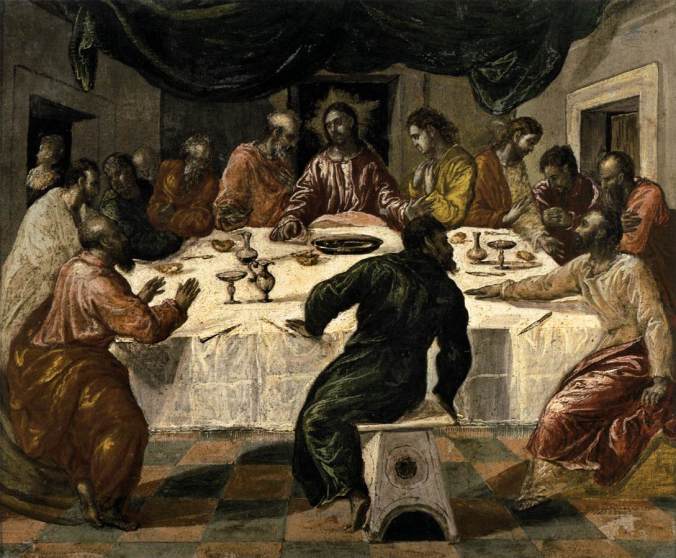In this edition of Thinking with the Church, we are doing something a little bit different: rather than feature a conversation, our co-Founder, General Manager, and host, Chris Altieri, proposes an itinerary for the recovery of some basic notions regarding marriage.
My concern to say a few things about marriage arises principally out of an experience on social media this past week: I asserted something I believed to be uncontroversial, i.e. that marriage is not a supernatural vocation, but the natural state for human beings.
I went on to say:
It takes very little to *get married*. Having a good, or even a halfway decent marriage: now, that takes a little work, mostly at being human. If you suck at being human, you are going to suck at being married, see? Because marriage is the natural state for humans.
That language was certainly blunt, and perhaps overly harsh.
I stand by the substance of my remark, however, even as I crave pardon of anyone to whom I caused consternation, and beg leave to explain myself more fulsomely.
I had hoped to encourage a conversation about the nature and public purpose of marriage, rather than embark on a debate about whether the Sacrament of Holy Matrimony is something generally different from natural marriage.
Nevertheless, it quickly appeared that some words were needful by way of explanation of the matter.
In the Catholic tradition – and indeed in just about every human society since man first appeared on Earth – marriage is the permanent union of one man and one woman (even in polygamous societies and in societies that practice polyandry, the women in the harem and the men in the stable are not married to each other, but one person – usually though not always a man – will enter into several iterations of the binary union), founded in the natural order, for the consolation of the spouses who enter upon it, and for the general flourishing of the human race.

Image credit: El Greco – Web Gallery of Art: Public Domain, Wikimedia Commons
Our Divine Lord and Savior, Jesus Christ, raised marriage to the dignity of a Sacrament: whenever two baptised Christians are validly married to one another, they have the Sacrament of Matrimony.
The union, in other words, is marital: it is by virtue of the spouses’ baptism, that they have the Sacrament when they are married.
It is not harder for Christians to contract marriage with each other, than it is for two persons of any other religion, or two persons of no religion, or one Christian and one non-Christian, to contract marriage with each other.
The Sacrament, in other words, is not something else, or something extra, something added by the Church: the Sacrament is simply what the marriage of two baptised persons is.
As one friend with many years’ experience with marriage tribunals in the Church pointed out: this is true of the union regardless of when the spouses were baptised in relation to their marriage contract.
In other words, even two non-Baptised persons who marry, have the sacrament once they are baptised – nothing else but their baptism is required in order that they have the Sacrament of Matrimony.
The principal purpose for my unsolicited assertion – a purpose I recognize as having been obscured by my brusqueness, was to point out that, while it is easy to contract marriage – even for Christians, whose marriages are Sacraments – it is not so easy to have a happy marriage, or even a halfway decent marriage.
This is, to one degree or another, something that has always been the case.
The problem for society arises when society itself loses sight of the public purpose of marriage as an institution – and the Church, I am sad to say, has been an unwitting participant in the darkening of society’s vision in these regards.
“Marriage,” said the Church to her members, who were also members of a society that had largely come to see marriage as little more than the public ratification of private sentiment and already begun in earnest to dismantle the protections it had erected for the institution, “is much, much more than mere ratification of sentiment – marriage is a Sacrament!”
This was true, to be sure, and still is.
The difficulty began to present itself when the Church began first to downplay the contractual character of marriage and then essentially to deny it: “Marriage is not a contract, it is a Sacrament!” we were wont to say.
The problem is, as I was at some pains to illustrate above, that the two categories are so far from being contraries, that they are actually concomitant – and that baptised spouses do not consent to something more, nor to something other than marriage, when they marry one another.
Pope Pius XII made the point in his October 3rd, 1941 Allocution to the Sacred Rota:
Indeed, if the tranquility, stability, and security of human intercourse in general demand that contracts be not lightly set aside, this is still more true of a contract of such importance as marriage, whose firmness and stability are necessary for the common welfare of human society as well as for the private good of the parties and the children, and whose sacramental dignity forbids that it be lightly exposed to the danger of profanation.
Pope St. John Paul II, in his own January 28th, 1991 Allocution to the same body, diagnosed the specific dangers to which contemporary society exposes both the institution of marriage and the people who enter into it:
In particular, in the affluent and consumeristic western world, such positive aspects tend to be distorted by an immanentistic and hedonistic vision that undermines the real meaning of marital love. It can be instructive to reread from the point of view of marriage what is said in the final report of the extraordinary Synod of Bishops about the external causes which impede the Council’s implementation: “In the wealthy nations we see the constant growth of an ideology characterized by pride in technical advances and a certain immanentism that lead to the idolatry of material goods, the so-called consumerism. From this can follow a certain blindness to spiritual realities and values” (I, 4). The consequences are ominous: “This immanentism is a reduction of the integral vision of the person, a reduction which leads not to true liberation but to a new idolatry, to the slavery of ideologies, to life in constraining and often oppressive structures of this world” (II, A. 1). From such a mentality the misconception of the holiness of the institution of marriage often follows, not to speak of the rejection of the institution of marriage itself, which opens the way for the spread of free love.
Even when it is accepted, the institution is often deformed both in its essential elements and in its properties. This happens, for example, when marital love is experienced in egoistic self-centeredness, as a form of evasion, which tends to justify itself and be consumed in itself.
Likewise freedom—although it is necessary for that consent which is basic to marriage—if it is absolutized, leads to the plague of divorce. People tend to forget then that in the face of difficulties in relationships it is important not to let oneself be dominated by fear or weariness, but to be able to find in love’s resources the courage to be consistent with the commitments made.
Renouncing one’s own responsibilities, moreover, rather than leading to true fulfillment of the person, results in a progressive self-alienation. In fact, it tends to attribute the difficulties to psychological mechanisms, whose functioning is understood in a deterministic manner, resulting in hasty recourse to the conclusions of psychology and psychiatry to claim the nullity of the marriage.
Three years earlier, on January 25th, 1988, Pope St. John Paul II made the point to the Rota that, in essence, many societies (and the Church present in those societies) have in fact confused the right and capacity to contract marriage, with the right and capacity to have a happy, successful marital union – even as they have also confused the issue of what constitutes “happiness” in marriage:
There is another and not infrequent source of misunderstanding in the evaluation of psychopathological symptoms. It arises not from an exaggeration of the extent of the illness but, on the contrary, from an unjustified exaggeration of the concept of capacity to contract marriage. As I noted last year (supra p. 192, no. 6), the misunderstanding can arise from the fact that the expert declares that a party is incapable of contracting marriage, while referring not to the minimum capacity sufficient for valid consent, but rather to the ideal of full maturity in relation to happy married life.
That last is a high and difficult ideal, indeed – and indeed, it escapes most of us, who are married.
Where I would like, humbly and tentatively, to suggest that – perhaps – we have gone wrong in the Church, is in our insistence that anyone who is not constantly living up, or close to that ideal, is therefore at present risk of total marital failure – is “doing it wrong” as the kids say today.
What we want – what we really want – is a return to a sense of basic decency and civility, of earnestness and willingness to make do.
As I put it, roughly, in a piece for the Irish Catholic a few months ago, in connection with World Youth Day:
We are all reluctant to admit failure, but find it easier to do when we can dress the task in which we failed in the raiment of impossibility.
Equally, we want to help young people find their way in a broken world – a world, for the brokenness of which we bear a great deal of responsibility.
We all want to empower young people to be courageous signs of contradiction and witnesses to the Gospel – but we often end up trying – vainly – to save them from our own missteps and seconding their angst-ridden adolescent penchant for navel-gazing even into their fourth decade of life on planet earth.
Let us rather encourage young people to get married and start families.
Times are tough, and life is complicated, but as we said at the outset, marriage is man’s natural state, and frankly does not take too much discernment.
My own American grandparents were 18 and 19 when they wed, and they’d grown up in the Depression and had to fight the II World War – which had just ended when they wed, so “times were tough” and “life was complicated” for them, too.
They had help, though: a sympathetic society and the GI Bill to pay for school – though there was no married student housing – something Catholic institutions might think about sponsoring today as a concrete way of putting our pro-life money where our pro-life mouth is.
Most importantly, let us remember that – Sacrament or no – the reason we say that marriage is the basic unit of society is that it is the one institution formed and constituted entirely on the giving and keeping of our word.
The kind of people we legitimately aspire to be, is one that does not despair of the human capacity, the capacity of men and women equally, though differently, to give their word, and to keep faith with it. Failure properly to exercise this duty of faith – of bona fides – is, here and there, inevitable.
Failure in commitment to doing it, is failure in fellowship.


















